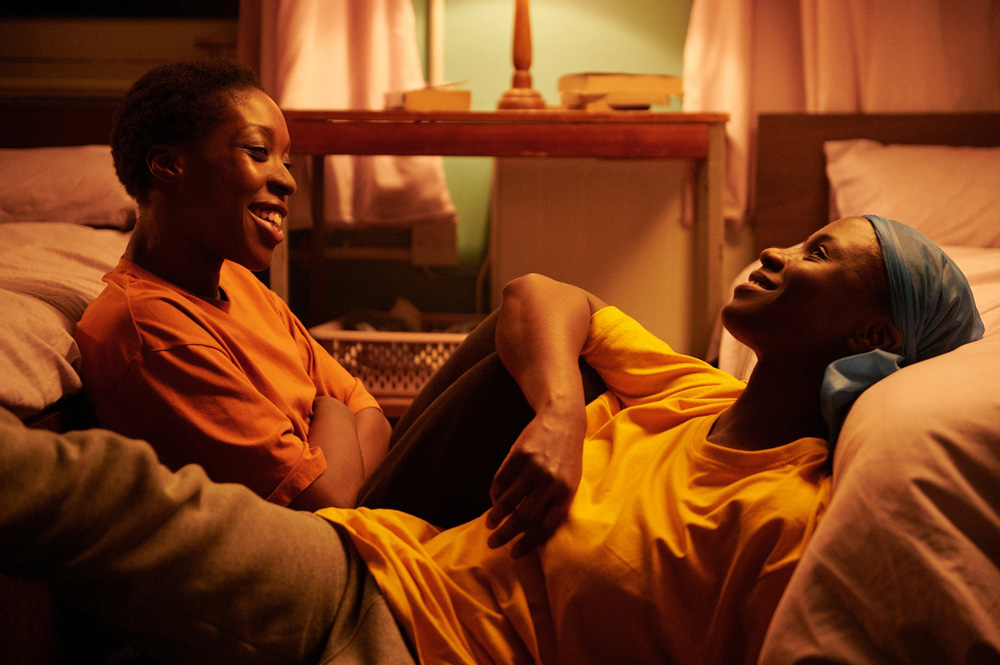It doesn’t look like Isio (Ronke Adekouejo) is being done any favors as she’s being escorted into a detention center in “Dreamers,” but she could have far worse roommates than Farah (Ann Akinjirin), who in discouraging her from thinking the staff isn’t the helpful bunch that the guard bringing her into the room would want to believe offers some truth that she feels she’s been deprived everywhere else. It isn’t exactly a warm welcome, but a compassionate one that sets the tone for Joy Gharoro-Akpojotor’s delicate debut feature which takes the physical incarceration that Isio endures as an opportunity to envision a different kind of prison as she contends with memories of why she migrated to England in the first place where she seeks political asylum after life in her native Nigeria was untenable as a gay woman.
You sense that this detail about herself was roughly as difficult to admit to herself initially as it is to ultimately confide in Farah after the two begin to bond after the realization sets in there’s going to be no way Isio makes it through her time at the holding facility without talking to anyone else. She tries for the first few days, unable to get out of bed when her stay is indefinite as she waits to plead her case to the proper authorities and even brief forays into the food hall are perilous with other women stuck there prone to bullying. But Farah gently coaxes her out, well aware that leaving her alone with her thoughts could be dangerous without anything to take her mind off her situation and arranges her to work in food preparation with Atefeh (Aiysha Hart), an Iraqi detainee, and Nana (Diana Yekinni), another Nigerian refugee.
What’s immediately apparent about “Dreamers” is that Gharoro-Akpojotor is far more interested in liberation than confinement, opting against the drab palette you might expect to put audiences on edge as much as the characters. The room Isio and Farah share is painted turquoise with pink curtains and the clothes they wear, likely the unsold stock from department stores with colors a little too outrageous for the general public to buy, feels authentic without being overbearingly grim, which puts the emphasis on the pressure that Isio feels from within to be true to who she is. A plan to escape the detention center eventually takes shape and being able to spot how poorly fortified it is only adds to the sense there’s something greater holding back Isio more generally as she’s compelled to talk about her experience as part of her case for asylum and gradually starts to have romantic feelings towards Farah that she’d have to admit to to act on.
Running a mere 78 minutes, “Dreamers” is relatively modest as a story but rather than feeling as if it’s attempting to cram a lot in, Gharoro-Akpojotor allows various facets of Isio’s experience to come and go as she’s feeling things out for herself and there are many moments bound to make an impression on audiences as they leave one on her. Andekouejo and Akinjirin both deliver strong performances as Isio and Farah, respectively, able to express a lifetime’s worth of anguish that’s led them to where they are now, and as those around Isio continually encourage her to start thinking about freedom in a different way, “Dreamers” is refreshingly not beholden to a conventional narrative, finding that even in a holding cell, there’s room to make space for yourself.
“Dreamers” will screen again at the Berlin Film Festival on February 19th at 10 pm at the Cubix 9, February 20th at 11 am at the Haus der Berliner Festspiele, February 21st at the Cubix 5 at 10 am and February 23rd at 10 am at the Cubix 9.




